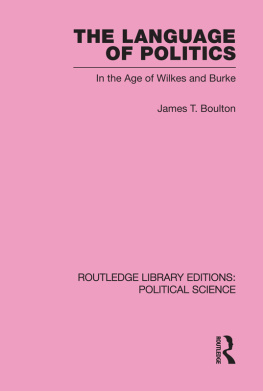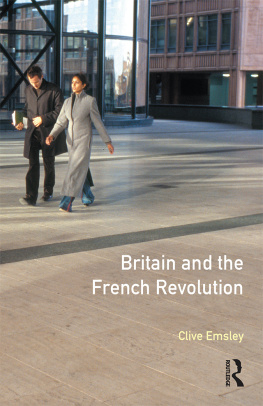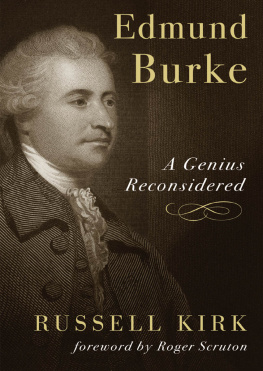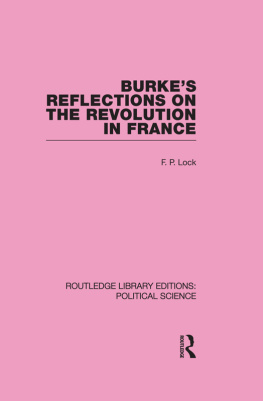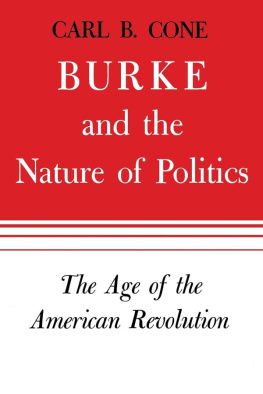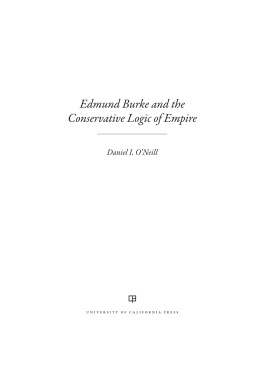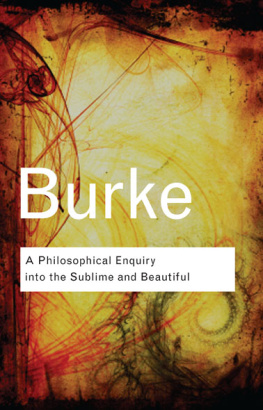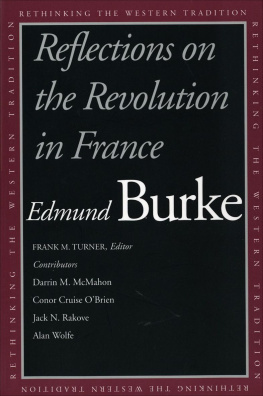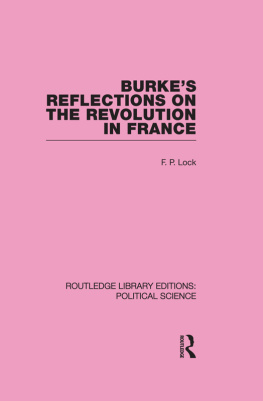ROUTLEDGE LIBRARY EDITIONS:
POLITICAL SCIENCE
THE LANGUAGE OF POLITICS
THE LANGUAGE OF POLITICS
In the Age of Wilkes and Burke
By
JAMES T. BOULTON
Volume 39

First published 1963
This edition first published in 2010
by Routledge
2 Park Square, Milton Park, Abingdon, Oxon, OX14 4RN
Simultaneously published in the USA and Canada
by Routledge
270 Madison Avenue, New York, NY 10016
Routledge is an imprint of the Taylor & Francis Group, an informa business
1963 James T. Boulton
All rights reserved. No part of this book may be reprinted or reproduced or utilised in any form or by any electronic, mechanical, or other means, now known or hereafter invented, including photocopying and recording, or in any information storage or retrieval system, without permission in writing from the publishers.
British Library Cataloguing in Publication Data
A catalogue record for this book is available from the British Library
ISBN 10: 0-415-49111-8 (Set)
ISBN 13: 978-0-415-49111-2 (Set)
ISBN 10: 0-415-55580-9 (Volume 39)
ISBN 13: 978-0-415-55580-7 (Volume 39)
Publishers Note
The publisher has gone to great lengths to ensure the quality of this reprint but points out that some imperfections in the original copies may be apparent.
Disclaimer
The publisher has made every effort to trace copyright holders and would welcome correspondence from those they have been unable to trace.
THE LANGUAGE
OF POLITICS
in the Age
of Wilkes and Burke

by
JAMES T. BOULTON
LONDON: Routledge & Kegan Paul
TORONTO: University of Toronto Press
1963
First published 1963
in Great Britain by
Routledge & Kegan Paul Ltd
and in Canada by
University of Toronto Press
James T. Boulton 1963
No part of this book may be reproduced
in any form without permission from
the publisher, except for the quotation
of brief passages in criticism
Edited by James T. Boulton
A PHILOSOPHICAL ENQUIRY INTO THE ORIGIN
OF OUR IDEAS OF THE SUBLIME
AND BEAUTIFUL
by Edmund Burke
FOR
H.B.
AND
A.M.P.B.
Editors Note
UNLIKE so many history series this one will not attempt a complete coverage of a specific span of time, with a division of labour for the contributors based on a neat parcelling out of centuries. Nor will it, in the main, be a collection of political monographs. Rather, the aim is to bring out books based on new, or thoroughly reinterpreted material ranging over quite a wide field of chronology and geography. Some will be more general than others, as is to be expected when biography is included alongside of detailed treatment of some comparatively short period of crisis like the appeasement of the Axis Powers. Nevertheless, whatever mode of presentation may have been appropriate, each work should provide an exposition of its subject in context and thus enable the reader to acquire new knowledge amidst things he knows, or could have known.
MICHAEL HURST
St. Johns College,
Oxford.
CONTENTS
Preface
T WO convictions prompted the writing of this book: first, that the political literature of the later part of the eighteenth century has been undeservedly neglected in worksof literary criticism; and second, that the insights obtained froma literary-critical examination of theseand any otherpolitical writings should be considered by historians andpolitical theorists as significant to their own special enquiries.The former conviction needs no verification: it is a fact. Thelatter is more contentious, and for that reason it is briefly arguedin the introductory essay and provides the theme for the con-cluding chapter.
The choice of the two periods of political controversy176971, centring on Wilkess election, and 179093, with the debate on Burkes Reflections as its focal pointwas determined both by their historical importance and by the stature of the writers involved in them. They did not, however, warrant investigation with the same degree of thoroughness, hence the unequal size of the two parts of this book. The first period lacks the cohesion which the publication of the Reflections provided for the second, and it did not engage a comparable number of talented contributors whose work merits critical assessment; nevertheless, the participation of three such writers as Junius, Samuel Johnson, and Edmund Burke is reason enough for discussing it, even though its byways are not explored. The historical survey with which each part opens isespecially in the case of the earlier controversyintended to remind the nonprofessional historian of some essential facts; the second survey is necessarily more extensive, and it also offered more scope for originality.
The publication of this book enables me to acknowledge many debts. The award by the Durham Colleges in the University of Durham of a research studentship, made tenable at Oxford fourteen years ago, brought me into contact with that most stimulating of scholars, the late Humphry House. Some of the work begun under his guidance is incorporated in the chapters which follow. To others I owe valuable critical appraisals of various sections of the book; among these are the General Editor of the series, Mr. M. C. Hurst, Professor Irvin Ehrenpreis, Mr. Charles Parkin, Dr. A. E. Rodway, Professor John C. Weston, Jr., and, in particular, Mr. W. R. Fryer, whose expert knowledge I have never consulted in vain. I am also grateful to Dr. Rodway for checking the proofs and to Mrs. Sheila Dryden for excellent secretarial assistance. For any errors which remain I am, of course, solely responsible.
My indebtedness to my wife is beyond measure, as it is to my parents, to whom the book is dedicated.
J. T. B.
University of Nottingham.
Acknowledgments
I GRATEFULLY acknowledge the permission given bythe Earl Fitzwilliam to quote from his collection of Burke manuscripts deposited in the Northamptonshire Record Office, Delapre Abbey. I acknowledge too his Lordships permission, together with that of the Trusteesof the Wentworth Woodhouse Settled Estates, to quote fromthe Burke manuscripts and the Papers, Correspondence, etc., of 2nd Earl Fitzwilliam in the custody of the City Librarian of Sheffield.
I also wish to acknowledge permission to reprint material originally published in article form. are revised versions of articles published in the Durham University Journal, University of Nottingham Renaissance and Modern Studies, and Essays in Criticism respectively.
Introduction

F EW periods of history have raised such passion amongprofessional historians as the reign of George III; the non-professional who ventures into the field does so with some mis-givings. He feels like an intruder in a battle between the oldpretenders and the young, between the Whig historians andthose stigmatised by Professor Butterfield as the new Tories, the Presbyterian literalists and counters of heads. Yet somethingremains to be said and from a new anglethat of the literarycritic.
The truth of this claim is borne out by the fact that none of the writings which I propose to discuss, from two of the most significant political controversies of the eighteenth century, has been subjected to thorough literary-critical analysis. In other words, the fundamental verbal examination of writings which, in varying degrees, have influenced thought and action from their own day to ours has been neglected by both literary critics and historians (in their published work at any rate). To take the example of Juniuss
Next page
